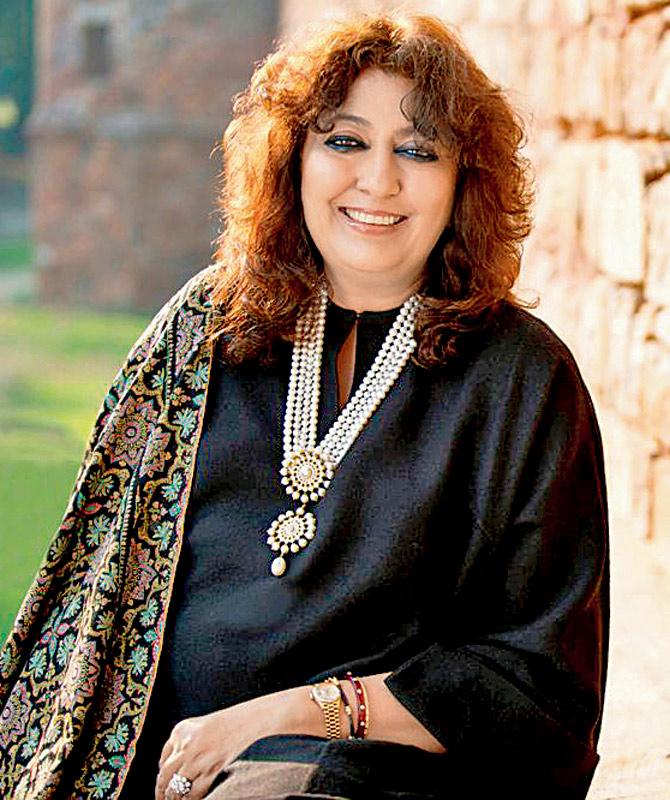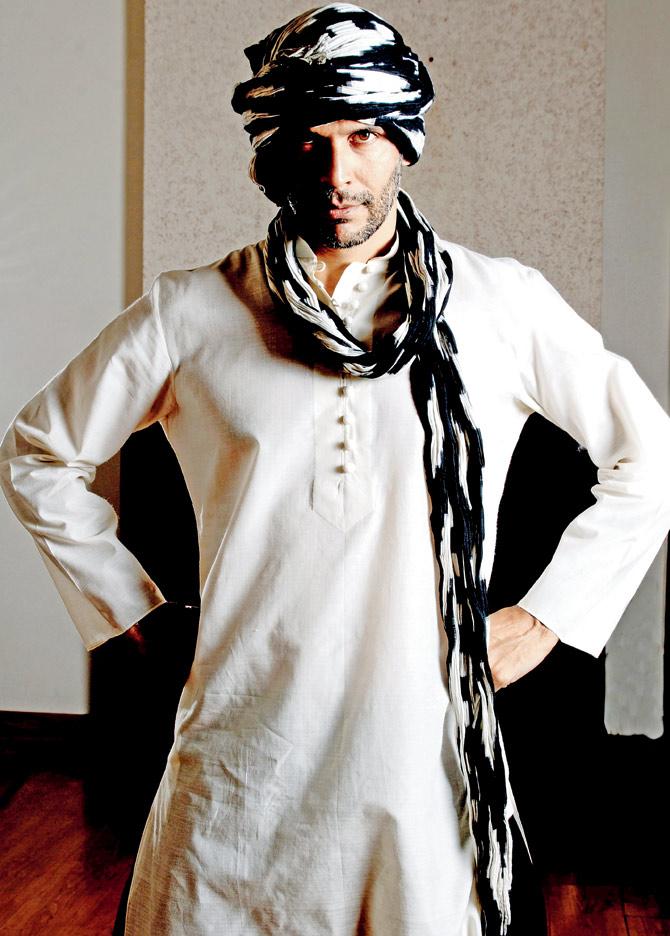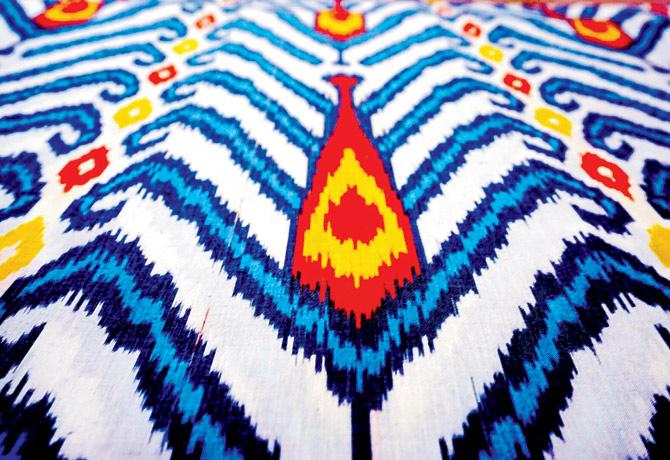Textile conservationist Madhu Jain showcases patterns from Uzbekistan to Andhra Pradesh at her retrospective in Mumbai

Madhu Jain
Madhu Jain prefers to be known as a textile conservationist and craft revivalist rather than fashion designer. With good reason. Jain was the first designer to have put the spotlight on ikkat weaving with her first show in Mumbai in 1988. And, to celebrate 29 years of unflinching commitment to traditional textiles and handlooms, Jain is holding a retrospective in the city on April 7.
ADVERTISEMENT
 Madhu Jain
Madhu Jain
The word ikkat comes from the Malaysian word 'mengikat', or 'to tie', because the loose threads are tied into bundles using wax-treated cotton to specify where the dye is able to sink in and colour the thread. “Ikkat weaving is a mathematical woven wonder, because they are woven with such precision. The weaver has to figure where on the loose threads the dye should (and shouldn't) go, in order for it to form the proper pattern. It's like a logic puzzle,” says Jain, whose client list includes Union Cabinet Minister for Women & Child Development Maneka Gandhi and actor Milind Soman.
 Actor and model Milind Soman
Actor and model Milind Soman
Her latest collection will a line of her new Uzbek-inspired ikkats, alongside a retrospective of her signature Andhra Pradesh and Odisha Ikkats. She has infused the Buddhist Mandala design from the textile traditions of Thailand into the latter. India and Uzbekistan, she says, share much in common when it comes to weaving. “The socio-cultural-historical relationship between Uzbekistan and India can be traced back to the 11th century. There, the cotton or silk ikkat coats were often created as robes of honour and as formal gifts.
 The nobility and rich merchants of Uzbekistan wore cotton or silk ikkat coats
The nobility and rich merchants of Uzbekistan wore cotton or silk ikkat coats
They were worn only by the nobility and rich merchants. The colour palette is rich — reds, golden-yellows and incandescent purples,” she explains. On the other hand, ikkat from Andhra, produced on pit looms, are used in the preparation of warp and weft. “Here, the design sensibility leans towards geometricals. In Odisha, ikkat is inspired by temple motifs and also by nature. So, you will notice parrots, flowers, elephants and deer,” she says.
Jain recalls her Nakshi Kantha line, for which she worked closely with the Bangladesh Rural Advancement Committee, one of the world's largest NGOs that works at reviving the gossamer-like Dhaka muslin and the intricate art of Nakshi Kantha in 1996. Katha or kantha is a style of hand embroidery that comes from Bolpur-Shantiniketan in West Bengal.
Several layers of used or worn out materials such as saris, lungis and dhotis are stitched together to make a single kantha. Kantha needlework is a spontaneous folk expression of personal desire and emotion of the rural woman belonging to different regional, ethnic, and religious groups. Thus, no two kantha pieces are alike. “It was my finest work till date. When I showcased it in Mumbai, there were no takers. Nobody understood what it was,” she says.
The solution, she believes, is to innovate. “Weavers are reluctant to change aeons-old patterns, but today, they realise that innovation in design and weave is key to staying ahead of the game. Otherwise, their livelihoods stand endangered.”
 Subscribe today by clicking the link and stay updated with the latest news!" Click here!
Subscribe today by clicking the link and stay updated with the latest news!" Click here!








